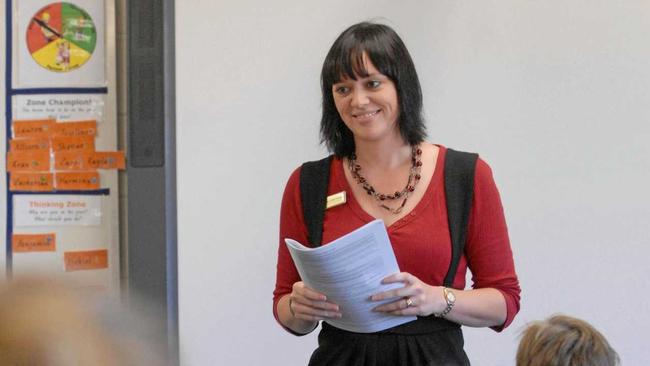OPINION: Why NAPLAN is hurting our kids
DEBATE over the effectiveness of NAPLAN and other standardised tests misses the real concern: the impact on Australian children.

Opinion
Don't miss out on the headlines from Opinion. Followed categories will be added to My News.
DEBATE over the effectiveness of NAPLAN and other standardised tests in measuring performance misses the real concern: the impact of the tests on Australian children. 
Standardised tests such as NAPLAN are sacred cows that should be replaced by more effective and valuable assessment measures that are less likely to traumatise students.
We must be open-minded and consider that past practices may need changing and that many of the educational sacred cows often held so dear - including NAPLAN and even homework - may need slaughtering.
NAPLAN is one of those practices that creates more problems than it solves.
When it is used to measure student and school performance instead of as a diagnostic tool, it has no place in student assessment.
Students report experiencing stress-related conditions such as insomnia, hyperventilation, profuse sweating, nail-biting, headaches, stomach aches and migraines leading up to, or during, test periods.
It's alarming and it's unnecessary. Our schools are complicit in creating stress and distress for the very students they exist to care for and nurture.
The National Assessment Program Literacy and Numeracy tests conducted in years 3, 5, 7 and 9 across Australia each year was established in 2008 and almost a decade later there is little evidence of the tests' effectiveness in supporting student learning and increasing evidence that it creates unnecessary stress and anxiety among students.
Many students are aware that their parents have high expectations of the test outcomes with increasing numbers of parents now choosing to provide "helpful" resources to assist their children in preparing for the tests.
So now we have schools staging NAPLAN "boot camps".
We have many teachers teaching to the test because they're aware of the ramifications for their school and their own rankings and ratings.
We have parents increasing kids' awareness of the perceived importance of the test, and we have students who at that age may not be ready for a testing process that's completely outside their normal school practices.
I am aware of discussions underway now about introducing NAPLAN testing for prep and year 1 students aged four and five.
In Queensland last year we had more than 500 four-year-olds excluded or suspended from school for behavioural issues. I would ask if the problem is that we suddenly have hundreds of four-year-olds with behavioural issues, or whether we are expecting kids to act and think in ways they're not ready for and that their behaviour reflects their struggles to express their anxiety.
There are several key concerns about the value of NAPLAN tests:
- An overemphasis on testing may lower standards as resources that would otherwise be focused on learning the curriculum are devoted to "teaching to the test".
- The tests are limited in what they can demonstrate about a student's learning - they reveal what information has been memorised rather than how well a student can apply knowledge, draw conclusions, create models, solve problems or think critically or creatively.
- Standardised tests show how students compare to other students but reveal almost nothing about an individual's learning and progress, given that they are only a snapshot in time and not a complete picture of a student's capacities or overall understanding of material learnt.
- NAPLAN results are published on the MySchool website each year, leading to comparisons between so-called "like" schools that should not be drawn.
- Teachers are blamed for - or feel they are blamed for - any difference in performance between these "like" schools.
This creates a high-stakes environment for teachers, which can then lead to a disproportionate amount of time being used to prepare for tests or, in some cases, accusations of cheating to ensure the best results.
Assessment is and must be an important way of measuring how a student is progressing.
But there are ways to assess that purposely avoid making students feel anxious and instead instill trust in their teachers.
Sunshine Coast-based Canadian education and child development specialist, Assoc Prof Michael Nagel, is based at the University of the Sunshine Coast's School of Education.


